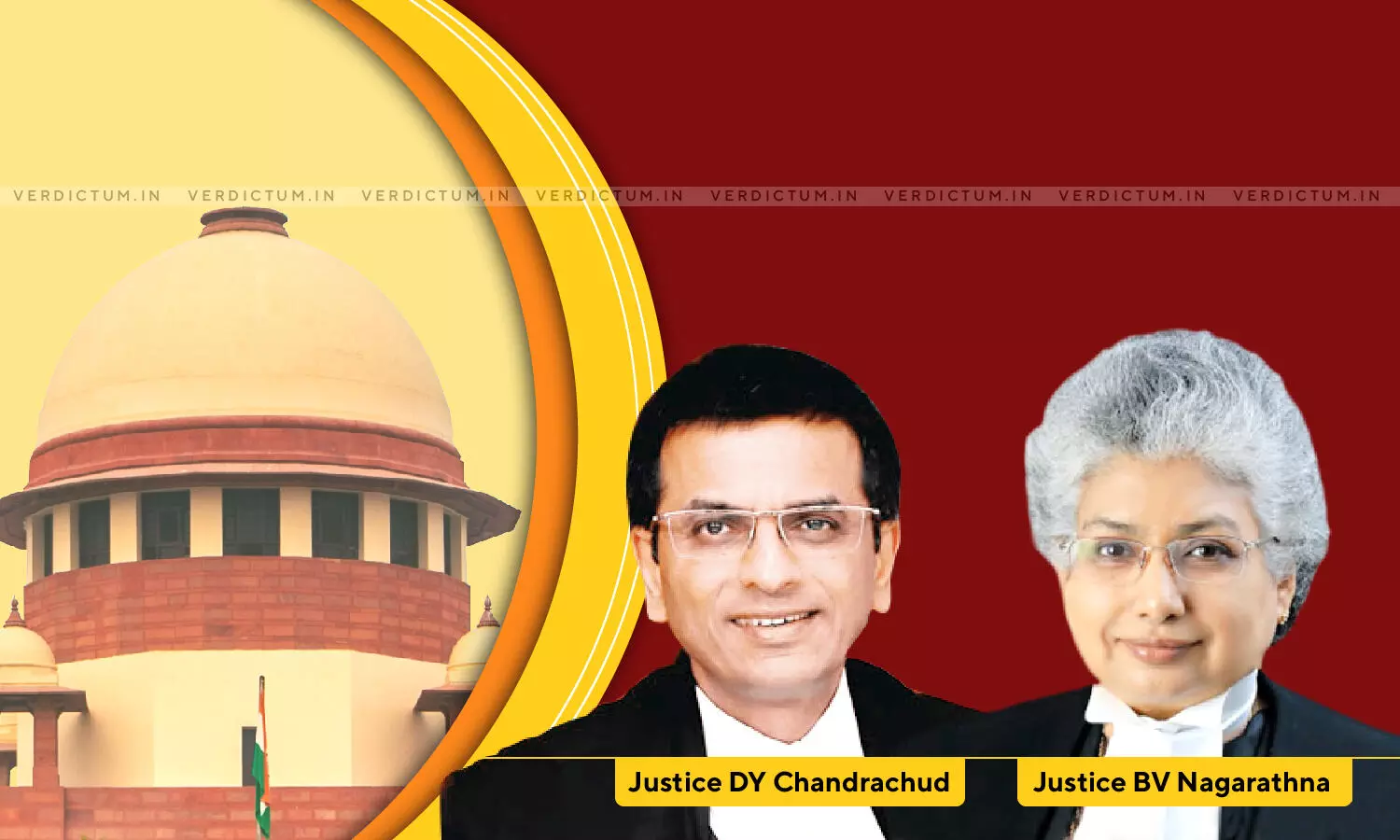
Supreme Court Invokes Article 142 To Direct Refund Of Stamp Duty In A Case Of Delay Due To Pendency Of NCDRC Proceedings
 |
|A two-judge Bench of Justice DY Chandrachud and Justice BV Nagarathna has held that the delay in filing of the application for refund of stamp duty was due to the lengthy proceedings before National Consumer Disputes Redressal Commission (NCDRC) and the application could not be rejected on the ground of delay. The Bench invoked Article 142 of the Constitution to grant relief to the Appellant in the case.
The Court observed, "A litigant has no control over judicial delays. A rejection of the application for refund would violate equity, justice and fairness where the applicant is made to suffer the brunt of judicial delay."
An appeal was preferred against the judgment of a Single Judge of Bombay High Court which had held that the Appellant's application for refund of stamp duty was barred by limitation under the provisions of Maharashtra Stamp Act as it was not filed within a period of six months from the date of purchase of e-stamp.
In this case, a dispute arose between the Appellant and the builder for which a consumer complaint was filed before NCDRC. The complaint was allowed by the Commission. In order to facilitate the execution of conveyance, the Appellant had purchased stamp paper prior to litigation. The Appellant was given two options, either to execute the agreement with the developer and receive compensation or seek a refund from the developer along with interest and compensation. The Appellant chose the latter option.
Subsequent to this, the Appellant applied for the refund of stamp duty, which was denied on the ground that the application for refund was barred by limitation. The Appellant challenged the refusal to refund, before the Bombay High Court, unsuccessfully.
The Appellant contended before the Supreme Court that his application for refund of stamp duty was not barred either on laches or limitation as the dispute between him and the builder was pending for adjudication before NCDRC. The Appellant relied upon Sections 47, 48 and 52A of the Maharashtra Stamp Act to support his arguments.
The Apex Court after observing the provisions of the Maharashtra Stamp Act held that the Appellant's application for refund of stamp duty did not fall under the ambit of Sections 47, 52 and 52A of the Act.
The Court referred to an earlier judgment in the matter of Committee-GFIL vs Libra Buildtech Private Limited and Others where refund of stamp duty was ordered in relation to a court-monitored transaction invoking the principle that an act of court should not prejudice a person and also Section 65 of the Contract Act.
The Bench noted that though the right to refund is a statutory creation and a refund can be sought only in terms envisaged by statute, the case of the appellant is not specifically barred by any substantive provision.
Further, the Bench opined that there was no delay on the part of the Appellant to file an application for refund of stamp duty once the order of NCDRC was pronounced.
"The appellant having exercised the latter option applied within two months from the order of the NCDRC for the grant of refund. The conduct of the appellant, therefore, cannot be held to be unreasonable nor was there any intentional or wanton delay on the part of the appellant in applying for a refund of stamp duty," the Court held.
The Court further observed, "As a general rule of law, the right to refund is a statutory creation. A refund can be sought in terms envisaged by statute. As discussed above, the case of the appellant is not specifically barred by any substantive provision."
"It is an established principle that this Court while exercising its power under Article 142 of Constitution must not ignore and override statutory provisions but must rather take note of the express statutory provisions and exercise its discretion with caution. 3 Therefore, if a statute prescribes a limitation period, this Court must be slow to interfere with the delay under Article 142," the Court held.
The Court asserted, "Since the delay in filling the application for refund in the instant case was due to the prolonged proceedings before the NCDRC, the application cannot be rejected on the ground of delay."
"A litigant has no control over judicial delays. A rejection of the application for refund would violate equity, justice and fairness where the applicant is made to suffer the brunt of judicial delay. Therefore, this is a fit case for the exercise of the power under Article 142 of the Constitution."
In the light of these observations, the Court allowed the appeal and set aside the impugned judgment of Bombay High Court with a direction that the Appellant would be entitled to the refund of stamp duty with an interest of 6% per annum until the date of refund.